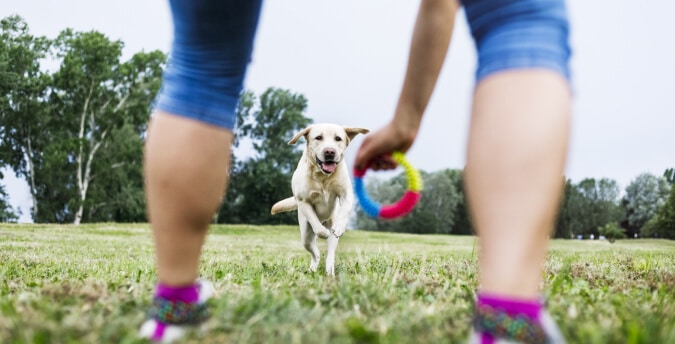The Most Common Mistakes That Are Committed When Training Dogs

It is always said that a dog is a man’s best friend. Dogs form part of our everyday lives. They live amongst us. Dogs are usually kept as pets. Training of dogs is essential in order for them to learn how to behave and when to perform certain tasks. We usually commit mistakes when training our dogs that we are unaware of. This article highlights some of the common mistakes committed while training dogs.
Trying too many training cues with your dog is not recommended. They take time to learn things. It is a step by step process, especially when teaching your dog complicated cues.
Training your dog when you’re not in the right mood is not encouraged. Dogs are able to sense moods of their trainers and this, in turn, affects the training sessions. Ensure that you are in the right mood when going on a training session with a dog. A dog will perform much better then.
Repeating the same cues does not help in training a dog. Repeatedly saying a word over and over again does not solve anything. A dog should only be trained using one word. Once you form a repetitive word when training, a dog will normally wait till you are done with the last word then perform the cue. For instance, it is more effective to say “Jump!”, rather than “Jump! Jump! Jump!”
Using food to leverage their willingness to training is a fantastic thing to do. However, when a trainer provides large portions of food, this gets a dog full and uncooperative. Small bits of food enhance training since a dog knows that after another session there will be more food.
Five to ten minutes a day are enough for training. Training for too long will not improve a dog’s understanding. Training one cue twice a week would do. It shouldn’t be an everyday task.
A dog needs enough training sessions to master a cue. Ten training sessions are generally enough for a dog to have mastered a cue. A trainer should not expect that a dog would have mastered a cue after two or three sessions.
An end word that notifies the dog when a training session is complete needs to be cultivated. At times, dogs can lose their concentration span and it is this word that will notify them that the training is over. It should be developed over time with a dog.
The timing of your rewards should be precise. Reward a dog immediately it performs a cue perfectly. It will thereby be able to relate the two occurrences and try to do the same again. It is therefore important to avoid disruptions in order for you to perfectly time the reward.
Where a new session is not going as planned, it is sometimes wise to go back to previous training sessions that the dog has already learned. A trainer may get frustrated thereby affecting the whole training session. A new cue should be undertaken when both the trainer and dog are in great moods.
Scolding a dog during training is not right. A dog will not improve in its behavior when scolded. Dogs require being motivated more effectively. They improve their behavior when they expect something in return.
Dogs often learn what they are taught by their trainers. If a dog is not able to learn what it is being taught, that is not their fault. How a trainer communicates with a dog greatly determines the outcome of the training. It is also important not to expect your dog to learn for a given period. Training takes time.
